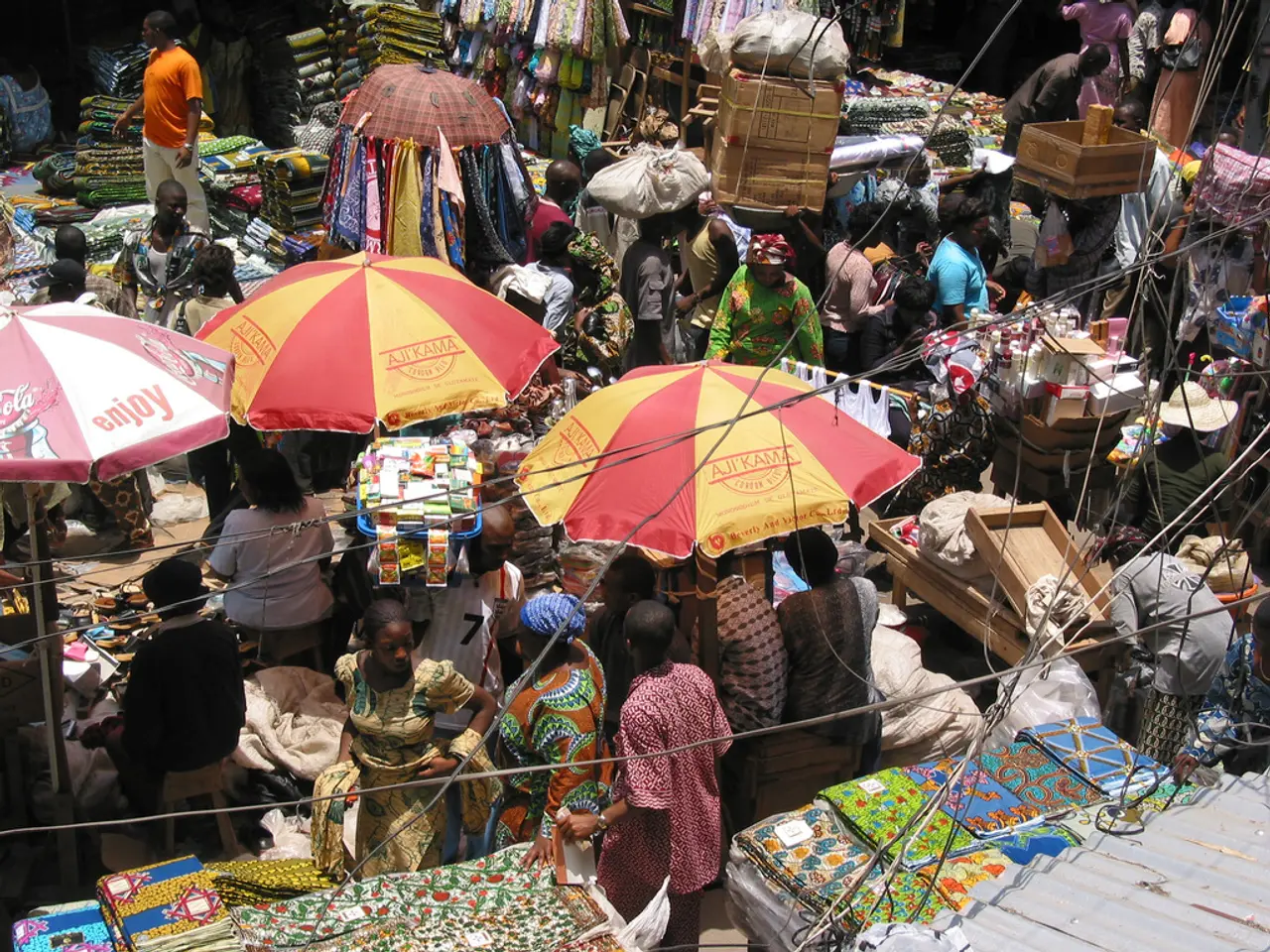Decrease in property sales by 26.4% reported
In the first half of 2025, Taiwan’s property market experienced a significant downturn, with total transactions falling by 26.4% year-on-year to approximately 130,000 units[1]. The decline was most pronounced in Keelung, where property transactions dropped by 45.6% to 2,041 units, the lowest since records began in 2006[1].
Key factors contributing to this decline include:
- Credit and mortgage tightening: Government-imposed restrictions on mortgage lending have limited buyers' ability to finance purchases, reducing market activity[1][3].
- Buyer caution and wait-and-see attitude: Even in regions with otherwise strong demand, buyers are hesitant due to economic uncertainties and expect a market correction[1][3].
- Economic uncertainties: Global trade tensions, tariff policies, and a strong New Taiwan Dollar have dampened domestic manufacturing revenues and overall economic confidence, which negatively influences housing demand[3].
- Shift in demand patterns regionally: While Keelung’s transactions plummeted, areas like Miaoli saw slight growth due to spillover demand from high-priced tech hubs such as Hsinchu City[1].
- High housing prices and affordability issues: Taiwan suffers from a unique housing problem of high prices, high homeownership rates, and high vacancy rates, which combined reduce liquidity and transaction volumes[4].
The decrease in property transactions is attributed to tightened credit controls and mortgage restrictions[2]. Even in areas with solid underlying demand, the property market has entered a wait-and-see phase, with buyers turning cautious[1].
However, Miaoli County was the only region to experience year-on-year growth, with transactions rising 2.4% to 3,229 units[1]. Great Home Realty Co attributed the increase in deals in Miaoli, particularly in Jhunan and Toufen townships, to spillover demand from neighboring Hsinchu City and Hsinchu County[5].
In addition to conventional sales, property transfers through inheritance, gifting, and court auctions were also tracked. Inherited property transfers increased by 5% in the first half of the year, reaching 39,000 units[1]. Gifting may also be tied to tax-saving strategies among spouses or family members, according to Sinyi research manager Tseng Ching-der[6].
The low default rate and limited supply of distressed assets contributed to the decrease in court auction transfers, which fell by 18% to 1,516 units[2].
Despite the slump in conventional sales, financial stability is indicated by the low delinquency ratio on housing loans, which remains near historical lows[7].
In the tech-driven housing market of Hsinchu, demand is facing a reversal, according to Great Home Realty researcher Lai Chih-chang[8]. The housing market is expected to continue a short-term correction with demand primarily from owner-occupiers rather than investors[1][3].
[1] Ministry of the Interior data [2] Data provided by Sinyi Realty Inc. [3] Ministry of Economic Affairs data [4] Central Bank of the Republic of China data [5] Great Home Realty Co statement [6] Sinyi Realty Inc statement [7] Banking data [8] Great Home Realty research report
Investors might be hesitant in the real-estate market due to the wait-and-see attitude among buyers, influenced by economic uncertainties and tightened credit and mortgage controls. In contrast, the demand for properties in some regions like Miaoli County seems to be driven more by owner-occupiers rather than investors.




